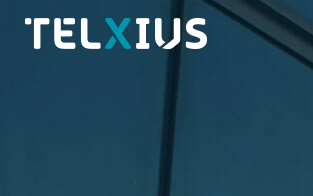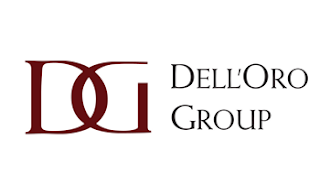T-Mobile US awarded a $3.5 billion contract to Nokia for the deployment of its nationwide 5G network.
Specifically, Nokia will help build T-Mobile's nationwide 5G network with 600 MHz and 28 GHz millimeter wave 5G capabilities compliant with 3GPP 5G New Radio (NR) standards. The agreement covers Nokia's end-to-end 5G technology, software and services portfolio. This includes Nokia's AirScale radio platforms and cloud-native core, AirFrame hardware, CloudBand software, SON and 5G Acceleration Services.
"We are all in on 5G," said Neville Ray, Chief Technology Officer at T-Mobile. "Every dollar we spend is a 5G dollar, and our agreement with Nokia underscores the kind of investment we're making to bring customers a mobile, nationwide 5G network. And together with Sprint, we'll be able to do So. Much. More."

"Nokia and T-Mobile will advance the large-scale deployment of 5G services throughout the United States," said Ashish Chowdhary, Chief Customer Operations Officer, Nokia. "This is a testament to our companies' strong and productive working relationship, one which has produced several important technological milestones in recent months, and which now allows us to make 5G a commercial reality."
Regarding its financial outlook, Nokia said the AirScale radio platforms and cloud-native core, AirFrame hardware, CloudBand software, SON and 5G Acceleration Services in this contract were included in the guidance issued in the Nokia Financial Report for Q2 and Half Year 2018 as stated on July 26, 2018.
Specifically, Nokia will help build T-Mobile's nationwide 5G network with 600 MHz and 28 GHz millimeter wave 5G capabilities compliant with 3GPP 5G New Radio (NR) standards. The agreement covers Nokia's end-to-end 5G technology, software and services portfolio. This includes Nokia's AirScale radio platforms and cloud-native core, AirFrame hardware, CloudBand software, SON and 5G Acceleration Services.
"We are all in on 5G," said Neville Ray, Chief Technology Officer at T-Mobile. "Every dollar we spend is a 5G dollar, and our agreement with Nokia underscores the kind of investment we're making to bring customers a mobile, nationwide 5G network. And together with Sprint, we'll be able to do So. Much. More."

"Nokia and T-Mobile will advance the large-scale deployment of 5G services throughout the United States," said Ashish Chowdhary, Chief Customer Operations Officer, Nokia. "This is a testament to our companies' strong and productive working relationship, one which has produced several important technological milestones in recent months, and which now allows us to make 5G a commercial reality."
Regarding its financial outlook, Nokia said the AirScale radio platforms and cloud-native core, AirFrame hardware, CloudBand software, SON and 5G Acceleration Services in this contract were included in the guidance issued in the Nokia Financial Report for Q2 and Half Year 2018 as stated on July 26, 2018.
IEEE 5G World Forum: T-Mobile says 5G is AWESOME
"5G is AWESOME" -- that's the message delivered emphatically by Egil Gronstad, Senior Director of Technology Development and Strategy for T-Mobile USA, speaking to a mostly academic audience at the 2018 IEEE 1st 5G World Forum (5GWF’18) in Santa Clara, California this week.
The main takeaway from his half-hour presentation: 5G is happening now at T-Mobile USA. The rollout is real and is proceeding if for no other reason than higher performance, which is always desirable in networking.
Some key takeaways:
The main takeaway from his half-hour presentation: 5G is happening now at T-Mobile USA. The rollout is real and is proceeding if for no other reason than higher performance, which is always desirable in networking.
Some key takeaways:
- T-Mobile's 5G commercial rollout begins this year in 30 cities and will be fully nationwide within 2.5 years. T-Mobile will deploy its 5G RAN using both 600MHz and 28GHz millimeter wave spectrum. Previously, Nokia confirmed that its equipment has been selected for the initial rollout.
- A key learning is that 5G requires mid-band spectrum and T-Mobile's newly licensed 600 MHz spectrum is a strategic advantage
- Building penetration loss for 5G in mmWave spectrum is significant
- T-Mobile is not expecting to charge more for 5G service compared to its existing plans. The company expects to attract new customers and applications as the cost justification for upgrading to 5G
- Voice needs to ride on the 5G network as soon as possible. In the transition to 4G, it was a mistake for voice to continue on the 3G for so long.
- T-Mobile USA has no current plans for 5G fixed wireless service but is looking very closely at the business case.
- T-Mobile USA has added one million or more users each quarter for the past 20 quarters





















